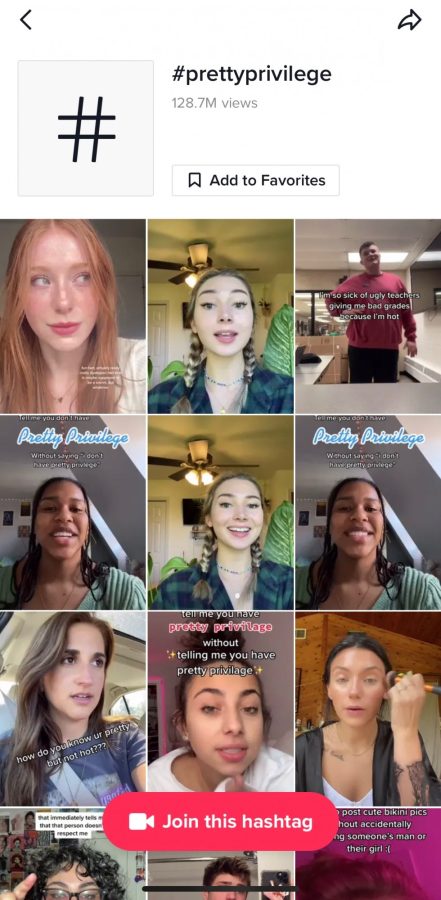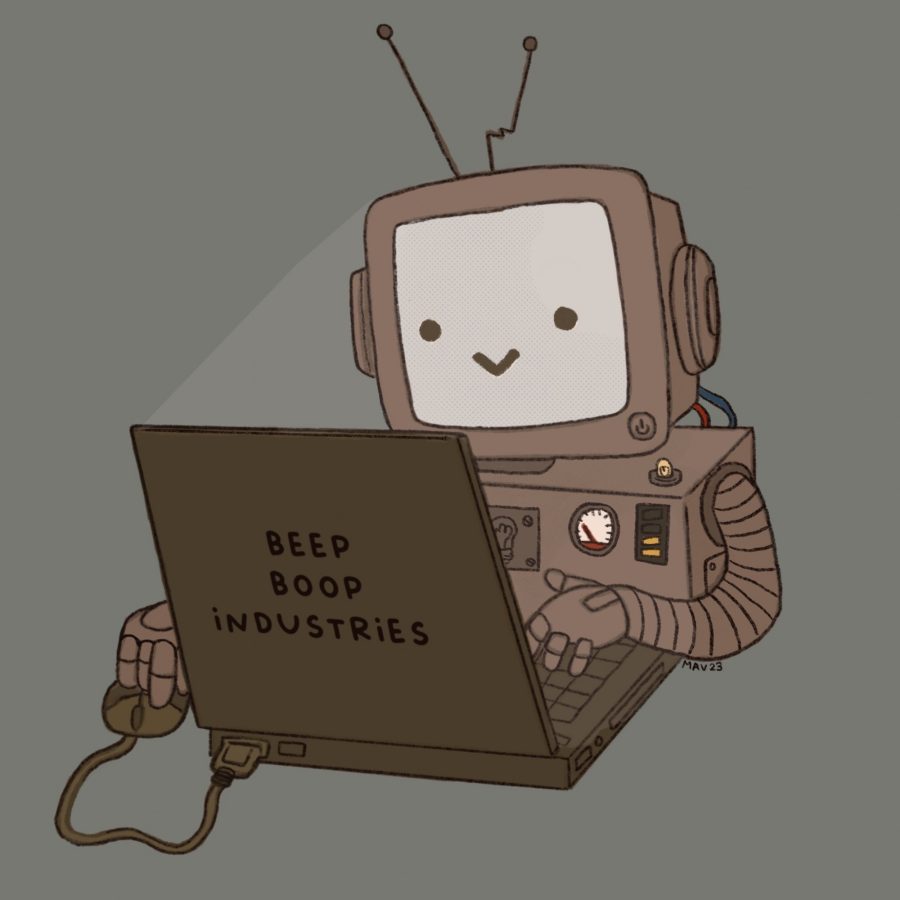“Tell me you have pretty privilege without actually telling me you have pretty privilege.”
#PrettyPrivilege on TikTok currently has over 126 million views. A current TikTok trend where people share their experiences of being treated differently and getting praise just for looking “pretty.”
A few examples of the trend are young girls on TikTok sharing their experience with receiving a large amount of tips when working as a waitress, getting their coffee paid for by someone who is in line behind them and even receiving extra credit or being graded easier on a tough paper.
Whether we would like to admit it or not, individuals who are viewed as “pretty” or “more attractive” receive more attention, rewards and opportunities than any other average individual. What does it even mean to be pretty? Dictionary.com defines pretty as “pleasing or attractive to the eye, as by delicacy or gracefulness”
The shallow concept of pretty privilege and giving more opportunities to those who are viewed as more attractive or better looking is more common than one may think. It’s everywhere around us, for example social media influencers receiving free products and vacations, certain individuals receiving more tips at work or individuals being handed a job solely because of their appearance.
This beauty bias or pretty privilege creates the idea that those who are viewed as prettier are also healthier, smarter, deserve more opportunities and special treatment, without taking into account who they truly are as a person. For many people the difference in treatment can leave us believing that in order to be successful and go far in life we must have a perfect physical appearance.
It’s important that we step back and take physical appearance out of the picture. There is more to life than this. However, in our society today many people don’t see this and are fixated on appearances and have an obsession with looks.
NBC’s The Today Show and AOL conducted a survey that focused on our obsession with our appearance. Through their research they found that women spend about 55 minutes per day on their appearance. This is equal to about 335 hours a year. The NBC and AOL study also found that, “Our obsession with our appearance starts almost the moment we wake” and reported that about half of adults think about their looks at least several times a day.
Our obsession with beauty and our appearance comes from the compliments, praise and opportunities others give to those who are viewed as more attractive. It’s important that we also focus on features that are not physical, and give compliments that aren’t appearance related to help change this scenario.
Instead of complimenting and praising individuals solely on their looks, think about their character, actions and how they make you feel. The less we point out and praise physical traits the more focus we will have on what really matters, personality, character and actions.
Follow Julianna Strano on Twitter

Julianna is a senior majoring in journalism and sociology. She enjoys writing and reporting on topics related to mental and physical health and wellness.









